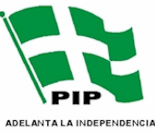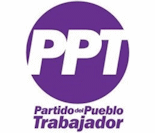Puerto Rico - Political Parties
Puerto Rican political parties are hopelessly earnest. For the 2016 campaign, the New Progressive Party (PNP) had a platform that was 227pages long, the longest of the parties, but not by much. Partido Popular Democratico (PPD) followers are known as "los populares", identified by color red. Partido Nuevo Progresista (PNP) followers are known as "los penepes", identified by color blue. Partido Independentista Puertorriqueño (PIP) follorwers are known as "los pipiolos", identified by color green.
In the 1992 general election, the New Progressive Party (PNP), which supports statehood for Puerto Rico, won 914,994 votes (50.3%) against 829,057 (45.6%) for the Popular Democratic Party (PPD), which backs continued commonwealth status - an arrangement established in 1952, under the governorship of the party's founding leader, Don Luis Muñoz-Marín - and 75,166 (4.1%) for the Puerto Rican Independence Party (PIP), which, as its name implies, advocates the separation of the island from the United States. In these elections, the PNP won the mayoralties of 54 municipalities, against 24 for the PPD.
Puerto Rico's longtime movement toward statehood saw a significant victory after Puerto Ricans elected Ricardo Rossello of the New Progressive Party in a tightly fought gubernatorial race on 08 November 2016. Rossello is a vocal supporter of statehood for Puerto Rico and vowed on the campaign trail to turn the debt-ridden Caribbean island into the 51st state.
In the 2016 gubernatorial election, the pro-statehood New Progressive Party (PNP) candidate, won 566,000 votes (42%) against 527,000 (39%) for David Bernier, the candidate of the Popular Democratic Party (PPD), which backs continued commonwealth status. The Federal legislation approved by a House committee, known by its acronym PROMESA, proposed to appoint a board to take over Puerto Rico's finances. It was opposed by María de Lourdes Santiago of the Puerto Rican Independence Party (PIP) with 2.1% of the vote, Rafael Bernabe of the Puerto Rico Working People's Party (PRTP) who won 0.34% of the vote and independent candidates Alexandra Lúgaro [11%] and Manuel Cidre [6% of the vote].
 In the 2016 campaign, the Partido Nuevo Progresista [PNP - New Progressive Party] expressed the "conviction that the status is the core problem of Puerto Rico. Having no representation with political power in matters that affect our daily live, we don't have stability. Statehood provides security and political stability that encourages investment and job creation, in addition to providing us with full parity in federal funds.... For all this and more, have stated consistently that any solution that comes from the Congress aimed to solve socio-economic problems of the island, It must be linked to decolonization and statehood.
In the 2016 campaign, the Partido Nuevo Progresista [PNP - New Progressive Party] expressed the "conviction that the status is the core problem of Puerto Rico. Having no representation with political power in matters that affect our daily live, we don't have stability. Statehood provides security and political stability that encourages investment and job creation, in addition to providing us with full parity in federal funds.... For all this and more, have stated consistently that any solution that comes from the Congress aimed to solve socio-economic problems of the island, It must be linked to decolonization and statehood.
"The repeated legislative actions of the federal Congress, official positions of the White House and the jurisprudence of the federal courts agree that Puerto Rico is a colonial territory. The true and only permanent union with the United States, as well as the only guarantee of citizenship and of the privileges and immunities set forth in the federal Constitution, is in statehood for Puerto Rico.
Despite the expression of Puerto Rican voters in the plebiscite of 2012, where they rejected the colony and embraced the statehood, that claim has not yet been served of effectively by Washington, and still less by the current administration. Therefore, emulating Tennessee and six other States in the nation (Michigan, Iowa, California, Oregon, Kansas and Alaska), will drive our efforts to abolish the colonialism of Puerto Rico through the Tennessee Plan."
 The Partido Independentista Puertorriqueno [PIP - Puerto Rican Independence Party] Government Program for 2016 stated : The Puerto Rican Independence Party (PIP), as in all programs since its founding, reaffirms its unwavering commitment to the independence of Puerto Rico. Our candidate for governorship, if elected, will promote a true status assembly, among decolonizing alternatives recognized by international law and in accordance with United Nations General Assembly Resolutions 1514 (XV) and 1541 (XV). In case the PIP, in addition to the government, obtains the legislative majority, the Government of Puerto Rico will make all the pertinent steps to proclaim, as soon as possible and as a result of the democratic claim of our people, the Republic of Puerto Rico. .... Those Puerto Rican citizens who in the Republic choose to maintain US citizenship in accordance with that country 's legal system may enjoy without prejudice to their rights and privileges as Puerto Rican citizens or dual citizenship or reciprocal citizenship.
The Partido Independentista Puertorriqueno [PIP - Puerto Rican Independence Party] Government Program for 2016 stated : The Puerto Rican Independence Party (PIP), as in all programs since its founding, reaffirms its unwavering commitment to the independence of Puerto Rico. Our candidate for governorship, if elected, will promote a true status assembly, among decolonizing alternatives recognized by international law and in accordance with United Nations General Assembly Resolutions 1514 (XV) and 1541 (XV). In case the PIP, in addition to the government, obtains the legislative majority, the Government of Puerto Rico will make all the pertinent steps to proclaim, as soon as possible and as a result of the democratic claim of our people, the Republic of Puerto Rico. .... Those Puerto Rican citizens who in the Republic choose to maintain US citizenship in accordance with that country 's legal system may enjoy without prejudice to their rights and privileges as Puerto Rican citizens or dual citizenship or reciprocal citizenship.
 In the 2016 election, the Popular Democratic Party (PPD - Partido Popular Democratico) promised to seek a permanent solution to the current relationship between Puerto Rico and the United States, arising from the consensus. The new Popular Democratic Party seeks "to be an instrument social justice and change in the service of all Puerto Ricans. The ideal of the new party Popular democratic will be the construction of a project for a country that promotes using the Unit and work the prosperity of the people of Puerto Rico through good management Government directed by the pursuit of the common good and respect for the dignity of persons and communities that inhabit this land. The new democratic party has to be the instrument to give the country the change that ensures the political stability needed for urgent transformation of the economy and governance of Puerto Rico."
In the 2016 election, the Popular Democratic Party (PPD - Partido Popular Democratico) promised to seek a permanent solution to the current relationship between Puerto Rico and the United States, arising from the consensus. The new Popular Democratic Party seeks "to be an instrument social justice and change in the service of all Puerto Ricans. The ideal of the new party Popular democratic will be the construction of a project for a country that promotes using the Unit and work the prosperity of the people of Puerto Rico through good management Government directed by the pursuit of the common good and respect for the dignity of persons and communities that inhabit this land. The new democratic party has to be the instrument to give the country the change that ensures the political stability needed for urgent transformation of the economy and governance of Puerto Rico."
The triumph of the people's Party would mean that it will immediately begin a dialogue with the United States to determine the modifications to the Commonwealth status. The party triumphed and the commitment was fulfilled. The Governor was, during the period from 1989 to 1991, a Committee of dialogue for the solution of the status with the participation of all political parties. Provided funding with public funds to each of the parties members of the Committee for their support and travel expenses. The next Governor with the Presidents of the other parties and to the members of the Committee of dialogue carried out by two years and half the efforts that have more advanced in Congress the issue of status until.
 The Partido del Pueblo Trabajador [PPT - Working People's Party] includes supporters of statehood, free association and independence. The 2016 program stated "For more than half a century the axis of the government's economic policy has been the attraction of foreign investment oriented almost exclusively to exports. ... The result is obvious: an economy from which more than $35 billion in profits is made each year, which therefore lacks a dynamic of accumulation and reinvestment and is therefore vulnerable to any withdrawal from the economy.... A lame economy, incapable of avoiding the abandonment of entire sectors such as agricultural activity and the processing industry related to this activity... the government will have to borrow to pay for the public works and services that the population needs, and that the same companies that do not pay taxes need it. And it is not strange that this lack of resources and that indebtedness lead to an acute fiscal crisis...
The Partido del Pueblo Trabajador [PPT - Working People's Party] includes supporters of statehood, free association and independence. The 2016 program stated "For more than half a century the axis of the government's economic policy has been the attraction of foreign investment oriented almost exclusively to exports. ... The result is obvious: an economy from which more than $35 billion in profits is made each year, which therefore lacks a dynamic of accumulation and reinvestment and is therefore vulnerable to any withdrawal from the economy.... A lame economy, incapable of avoiding the abandonment of entire sectors such as agricultural activity and the processing industry related to this activity... the government will have to borrow to pay for the public works and services that the population needs, and that the same companies that do not pay taxes need it. And it is not strange that this lack of resources and that indebtedness lead to an acute fiscal crisis...
" Like slavery, colonialism is a social and political situation that can not be tolerated. The recognition of the colonial nature of the situation in Puerto Rico must be accompanied by immediate steps to give way to decolonization and self-determination. It is the duty of the United States Congress to give way to the exercise of Puerto Rico's right to self-determination and to facilitate the overcoming of the colonial relationship and its legacy. It is the task of the people of Puerto Rico to organize themselves to demand those rights and to design the most democratic and effective way of exercising it. In that can collaborate supporters of all the options of status that are committed to decolonization.
"The PPT considers that resolution 748 (VIII) adopted by the United Nations General Assembly in 1953 should be repealed and that it removed Puerto Rico from the list of countries that have not yet exercised their right to self-determination."
Political Parties of Puerto Rico, Founded 1898 through 1945*
| Political Party | Period | Description | Resident Commissioner |
|---|---|---|---|
| Partido Federalista (Federal Party) | 1898–1904 | Supported internal autonomy and eventual independence. Backed primarily by coffee growers who were critical of U.S. trade policy that negatively affected their crop.1 | Luis Muñoz Rivera |
| Partido Republicano (Republican Party) | 1898–1932 | Supported eventual statehood. Backed by commercial powers with economic ties to the United States, including sugar producers. Continued as the Pure Republicans after 1924.2 | Federico Degetau José Lorenzo Pesquera (unofficially) |
| Partido de Unión (Union Party) | 1904–1932 | Born of an alliance between dissident members of Partido Republicano and Partido Federalista. Initially supported a “catch-all” program of independence, statehood, and autonomy and stood firmly in favor of amending the Foraker Act of 1900 to include a greater degree of self-government. Eventually embraced autonomy after eliminating statehood from the platform in 1912 and independence in 1922.3 | Luis Muñoz Rivera Tulio Larrínaga Félix Córdova Dávila |
| Alianza (Alliance) | 1924–1932 | Derived from factions in both the Partido de Unión and Partido Republicano. Took a pragmatic approach, supporting autonomy and believing statehood and independence were politically unfeasible in Washington.4 | Félix Córdova Dávila |
| Partido Socialista (Socialist Party) | 1915–19485 | Born of the political wing of the Federación Libre de Trabajadores (Free Federation of Labor), a labor union with ties to the American Federation of Labor. Informed by the global political movement, the Party initially considered itself an extension of the American Socialist Party; formal ties between the two parties ceased in 1924. Supported statehood but focused primarily on social justice and aiding impoverished Puerto Ricans.6 | Santiago Iglesias |
| Partido Nacionalista (Nationalist Party) | 1922–1960s | Split from the Partido de Unión, advocating complete cultural and political independence from the United States. Never carried a significant electoral base, peaking with an unsuccessful electoral alliance with the Liberal Party in 1932. Turned toward violence following the 1932 electoral loss amid crippling economic depression. Followers carried out a number of attempted assassinations, several successfully.7 | N/A |
| Coalición (Coalition) | 1924 | An electoral agreement between a wing of the Partido Republicano and the Partido Socialista for the 1924 election cycle. Both parties campaigned on the issue of statehood but maintained separate platforms.8 | Santiago Iglesias |
| Partido Unión Republicana (Union Republican Party) | 1932 | Derived from portions of the Alianza and the Partido Republicano. Sought statehood but favored independence over contemporary colonial arrangement. Organized in January 1932 and absorbed into the Coalición in October 1932.9 | José Lorenzo Pesquera (unofficially) |
| Coalición (Coalition) | 1932–1940 | An electoral fusion agreement between the Partido Unión Republicana and Partido Socialista. Supported statehood and the social justice platforms advocated by the Socialistas. Opposed local New Deal interventions. | Santiago Iglesias Bolívar Pagán |
| Partido Liberal (Liberal Party) | 1932–1940 | Organized from factions of the Partido de Unión and Partido Republicano. Criticized the U.S. government for its perceived neglect of Puerto Rico’s political and economic needs, and supported independence. Provided local support for New Deal programs specific to Puerto Rico. Factions split over support for Tydings legislation in 1936, calling for immediate and complete political and economic independence.10 | N/A |
| Partido Popular Democrático (PPD or Popular Democratic Party) | 1938–present | Organized by Luis Muñoz Marín shortly after he left the Partido Liberal. The PPD was a key supporter of a series of social and economic reforms in the 1930s and 1940s. Supported the formation of the Estado Libre Asociado (Free Associated State) in 1952 and thereafter supported autonomy within the commonwealth status. Dominant on the island from the 1940s to the late 1960s.11 | Jesús T. Piñero12 |
Footnotes
*General sources defining Puerto Rico’s political parties, including visual interpretations, are available in Richard E. Sharpless, “Puerto Rico,” in Robert J. Alexander, ed., Political Parties of the Americas (Westport, CT: Greenwood Press, 1982): 611–623; César Ayala and Rafael Bernabe, Puerto Rico in the American Century: A History since 1898 (Chapel Hill: University of North Carolina Press, 2007): 143 (see especially Figure 7.1); Truman R. Clark, Puerto Rico and the United States, 1917–1933 (Pittsburgh, PA: University of Pittsburgh Press, 1975): 77.
1Sharpless, “Puerto Rico”: 617; Ayala and Bernabe, Puerto Rico in the American Century: 52–55.
2Sharpless, “Puerto Rico”: 621–622; Ayala and Bernabe, Puerto Rico in the American Century: 52–55.
3Sharpless, “Puerto Rico”: 623; Ayala and Bernabe, Puerto Rico in the American Century: 55.
4Ayala and Bernabe, Puerto Rico in the American Century: 59; Clark, Puerto Rico and the United States, 1917–1933: 80–82.
5The last Socialist territorial senator, Bolívar Pagán, won his final term as a Socialist in 1948. See Fernando Bayron Toro, Elecciones y partidos políticos de Puerto Rico, 1809–2000 (Mayagüez, PR: Editorial Isla, 2003): 212.
6Gonzalo F. Córdova, Resident Commissioner Santiago Iglesias and His Times: 134; Ayala and Bernabe, Puerto Rico in the American Century: 61–68.
7Sharpless, “Puerto Rico”: 617–618; Ayala and Bernabe, Puerto Rico in the American Century: 105–107.
8Bayron Toro, Elecciones y partidos políticos de Puerto Rico: 161.
9Córdova, Resident Commissioner Santiago Iglesias and His Times: 231–232; Clark, Puerto Rico and the United States, 1917–1933: 144–145.
10Sharpless, “Puerto Rico”: 617; Ayala and Bernabe, Puerto Rico in the American Century: 100, 115–116; Córdova, Resident Commissioner Santiago Iglesias and His Times: 158.
11Sharpless, “Puerto Rico”: 620–621.
12Other individuals who served as Resident Commissioner from the PPD served after 1945.
|
NEWSLETTER
|
| Join the GlobalSecurity.org mailing list |
|
|
|

